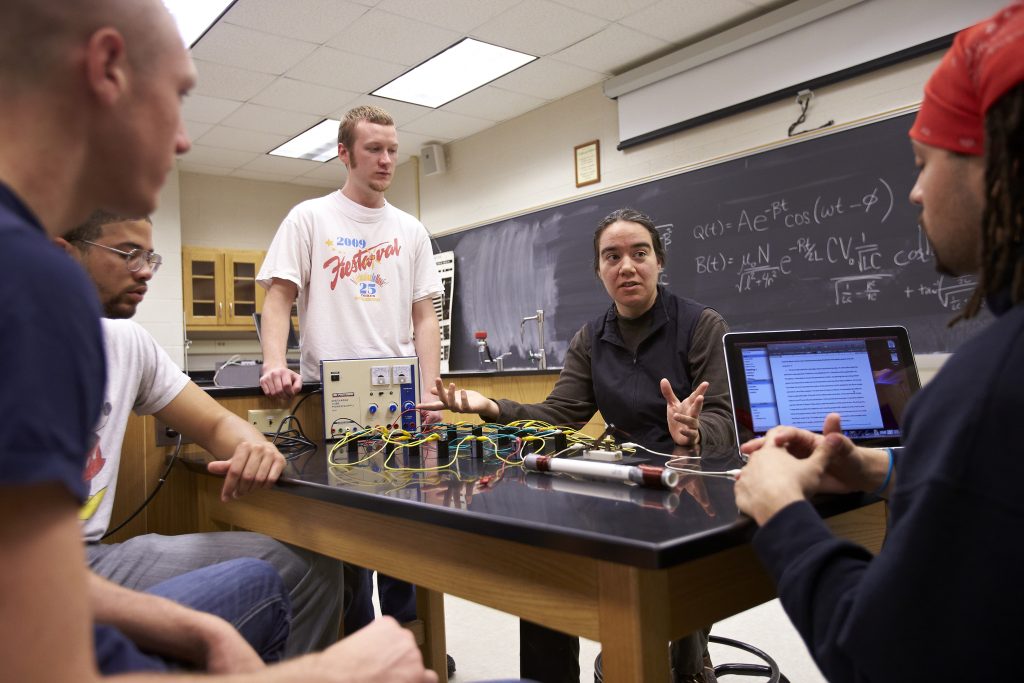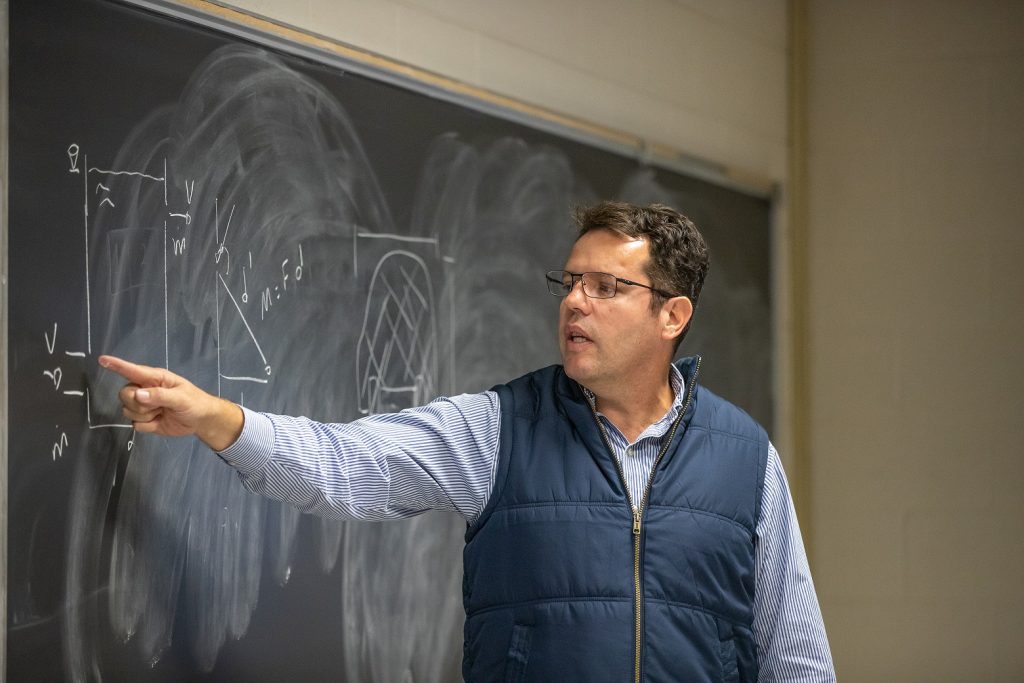With the development of its newest major in engineering, Bridgewater College seeks to give students a clearer path to their desired career outcomes. Over the last five years, the field of engineering has consistently been named among the top four career objectives by admitted students to Bridgewater College. In response to student interest, the College reworked its applied physics major curriculum to offer an undergraduate degree in engineering, which will allow students to graduate with career-ready skills necessary for the fields of mechanical engineering, automation engineering and mechatronics, nuclear engineering, aerospace engineering and automotive design. Pending approval by the Southern Association of Colleges and Schools Commission on Colleges in summer 2023, the College will officially launch the engineering major in the fall of 2023, with its first cohort graduating in 2027.
Through rigorous coursework in mathematics, science and engineering, Bridgewater’s engineering students will be well prepared for the challenge of practicing engineering in a world that needs highly qualified professionals with a commitment to social responsibility and ethical practices. Bridgewater students will graduate with the professional tools and mastery of knowledge needed to enter the workforce or to continue their education at a more advanced level. The engineering program, which will be housed in the newly renamed Department of Engineering and Physics, incorporates a blend of experiential and theoretical learning in mathematics, computer-aided design and fabrications, 3-D modeling, electronics and control systems and mechanical design.
Starting in their first semester on campus, Bridgewater engineering students will have the opportunity to explore different aspects of engineering with hands-on learning in the College’s electronics laboratory, mechanical design and fabrication lab and 3-D printing lab. Optional concentrations in mechanical engineering and mechatronics allow for further study of topics of interest. The mechanical engineering concentration provides a strong mathematical and experimental foundation for students interested in mechanical design and industrial applications. The mechatronics concentration offers a blend of computer science, control and sensor systems and mechanical skills to prepare students for careers in electronics, automation and robotics.

The College’s applied physics major curriculum laid the groundwork for the engineering major, and many of BC’s applied physics majors pursued dual-degree engineering programs at other universities or completed graduate work in engineering. Offering an undergraduate engineering degree provides a more direct, accessible path to careers after graduation for all students.
“Establishing the engineering program is adapting something we already had in place to provide something our students are asking for. It allows them to complete their engineering degree in four years and be ready to enter the workforce with a strong foundation of critical thinking and problem-solving abilities as well as technical skills,” said Dean of the School of Natural Sciences and Professor of Physics Dr. Philip Spickler.
As one of a handful of small liberal arts colleges in Virginia that offers a degree in engineering, Bridgewater College allows students interested in this popular field of study to pursue their academic goals in a creative, globally minded environment focused on developing the whole person. Engineering students will benefit from the knowledge and skills gained from Bridgewater’s liberal arts curriculum, which includes critical thinking, working collaboratively with others to achieve shared goals and professional communication.
“Developing engineers who are creative problem solvers and can employ unique ways of thinking is crucial in today’s world. A liberal arts setting such as Bridgewater’s is a fantastic environment in which to learn, because our students place value on expanding their interests in different disciplines as well as beyond the academic setting. Bridgewater provides students with the necessary skills and knowledge to pursue their chosen career while offering them a myriad of opportunities to pursue their other interests and form connections between all of their experiences, which helps them form a strong identify moving forward,” Spickler said.
In addition, the College’s engineering major is designed to meet accreditation standards set by the Accrediting Board for Engineering and Technology (ABET). Once the College graduates its first cohort, the College will be eligible for accreditation. ABET accreditation allows graduates from cooperating institutions the opportunity to gain licensure as Professional Engineers (PEs), a certification that is necessary within certain career fields and organizations.
Learn more about Bridgewater College’s engineering major at bridgewater.edu/engineering.
Media Contact:
Jessica Luck
Editor and Director of Media Relations
jluck@bridgewater.edu
(540) 828-5720


